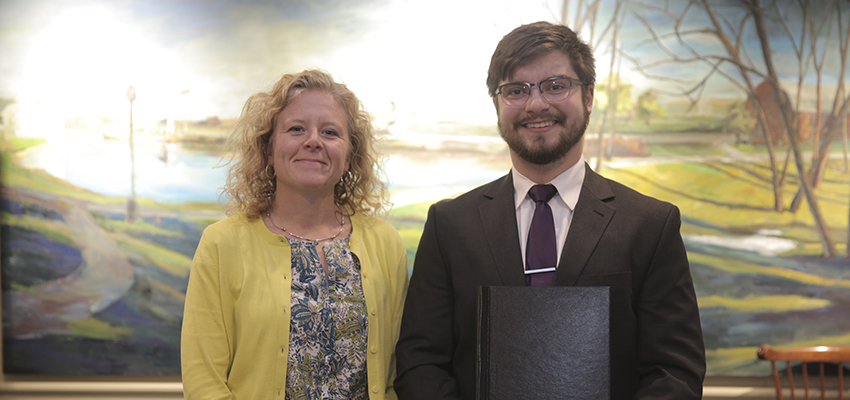
HWS News
22 October 2019 Cushman and Michels '17 on Invasive Species
Finger Lakes Institute research scientist and Director of Introductory Biology Laboratories Susan Cushman '98 is conducting research across the globe on invasive species as her former pupil, Noland Michels '17, addresses similar issues through his research at the University of Minnesota Duluth. Cushman recently presented her findings at the Aquatic Seminar Series sponsored by the Colleges' Finger Lakes Institute.
"Island nations are very protective of their ecosystems and can provide interesting field guides to managing invasive species in other parts of the world," says Cushman, who conducted research in New Zealand, Australia and Cuba with Associate Professor of Biology Meghan Brown and Assistant Professor of Biology Bradley Cosentino. In the Finger Lakes, agriculture and water resources are the variables at risk from invasive species.
Their findings will help shape local policy as new ecological challenges shape the region. Cushman is a proponent of localized efforts in communities that help limit invasive species and monitor changes in activity. "It's one of those scenarios where we're starting to weigh the importance of control versus balance in an ecosystem," Cushman says.
Round Goby, one of the most potentially disruptive invasive species threatening Seneca Lake, is a key focus of research for Michels as he completes his master's degree.
A biology and environmental science major at HWS, Michels began researching invasive species alongside Cushman during his junior year. "We're exploring invasive species to better control their impact on various environments. It is an ever-worsening problem in the Finger Lakes, the Great Lakes and beyond, and increasing awareness is the key to limiting their impacts," Michels says. "My work with Susan cemented my reasoning to continue in a career of invasion biology and has left me well-prepared for the rigors of graduate-level work."
The Finger Lakes Institute is dedicated to the promotion of environmental research and education about the Finger Lakes and surrounding environments. In collaboration with regional environmental partners and state and local government offices, the Institute fosters environmentally-sound development practices throughout the region, and disseminates accumulated knowledge to the public. The annual Aquatic Seminar Series welcomes more than 100 scientists and community partners to campus to discuss the regions most pressing issues.
A member of the faculty since 2007, Cushman returned to her alma mater after earning a master's from Johns Hopkins University and a Ph.D. from University of Maryland.

